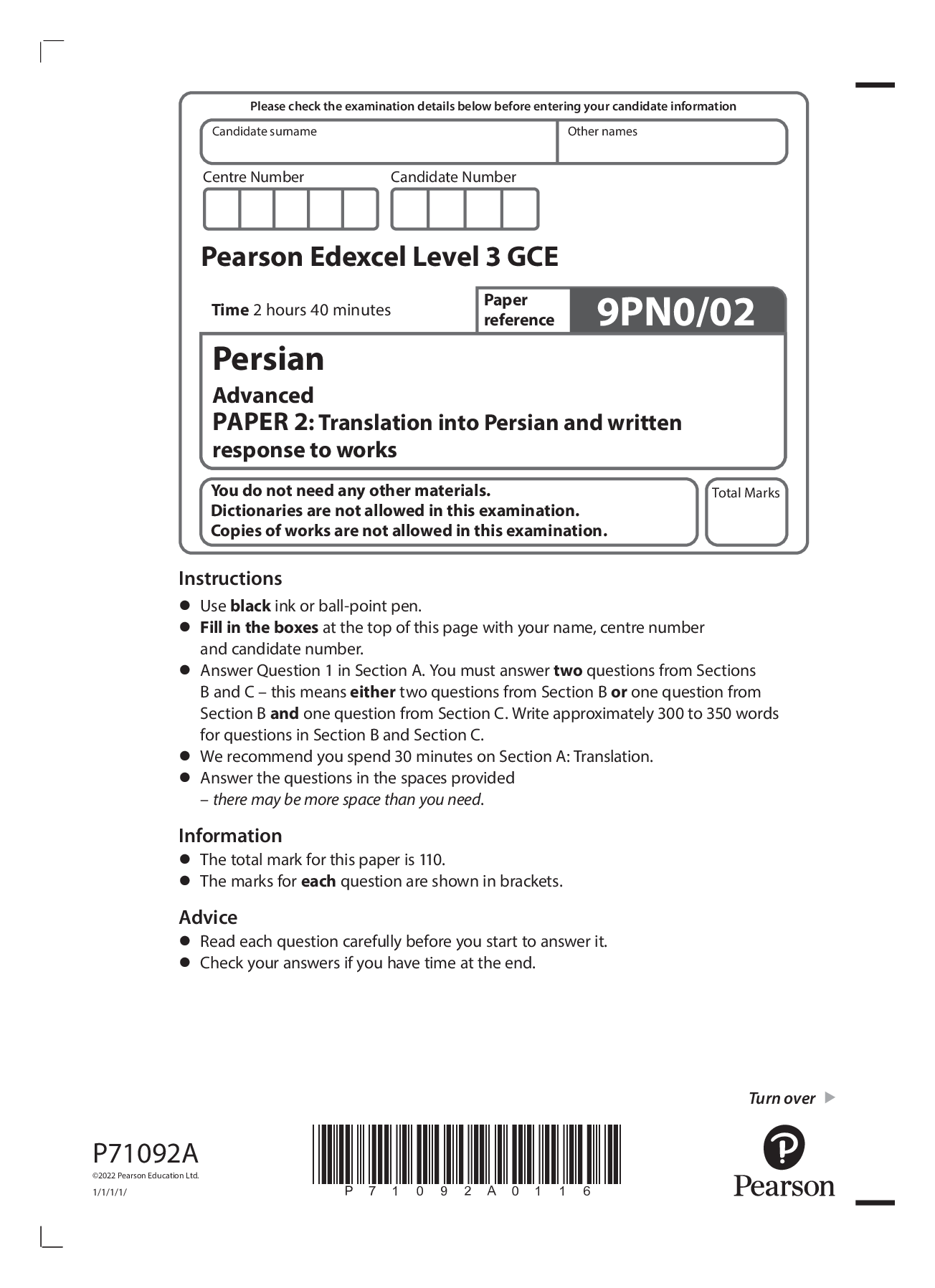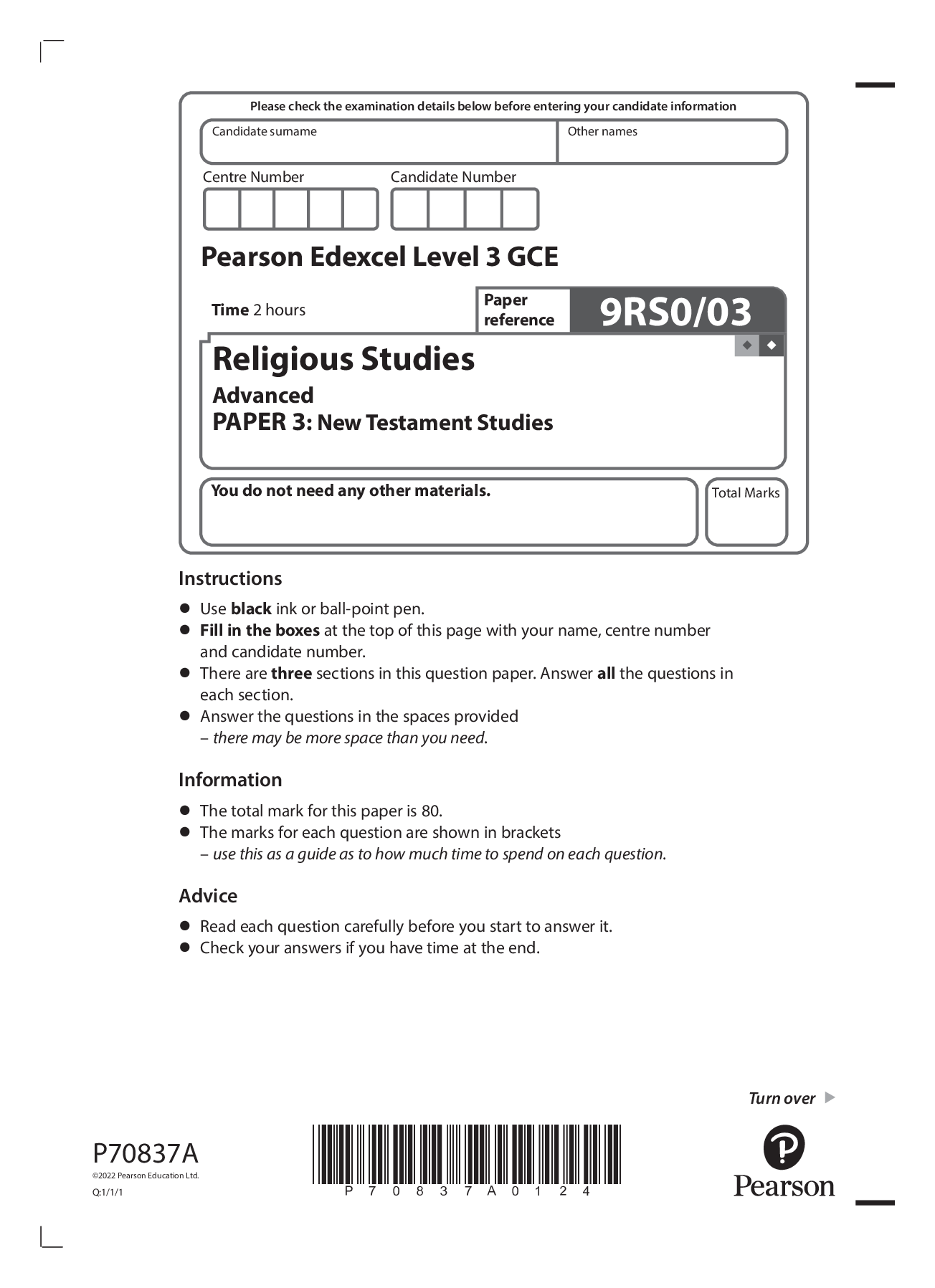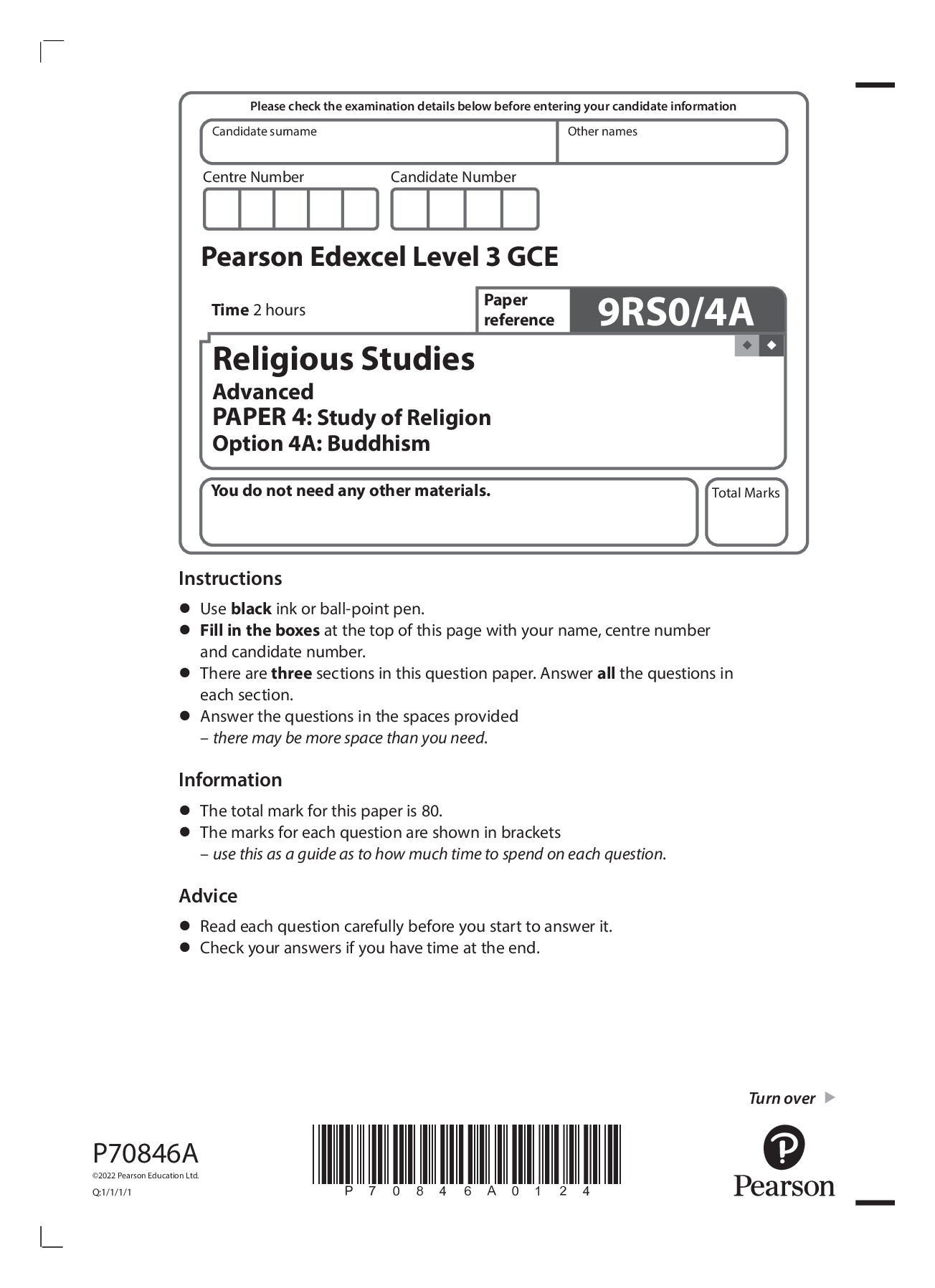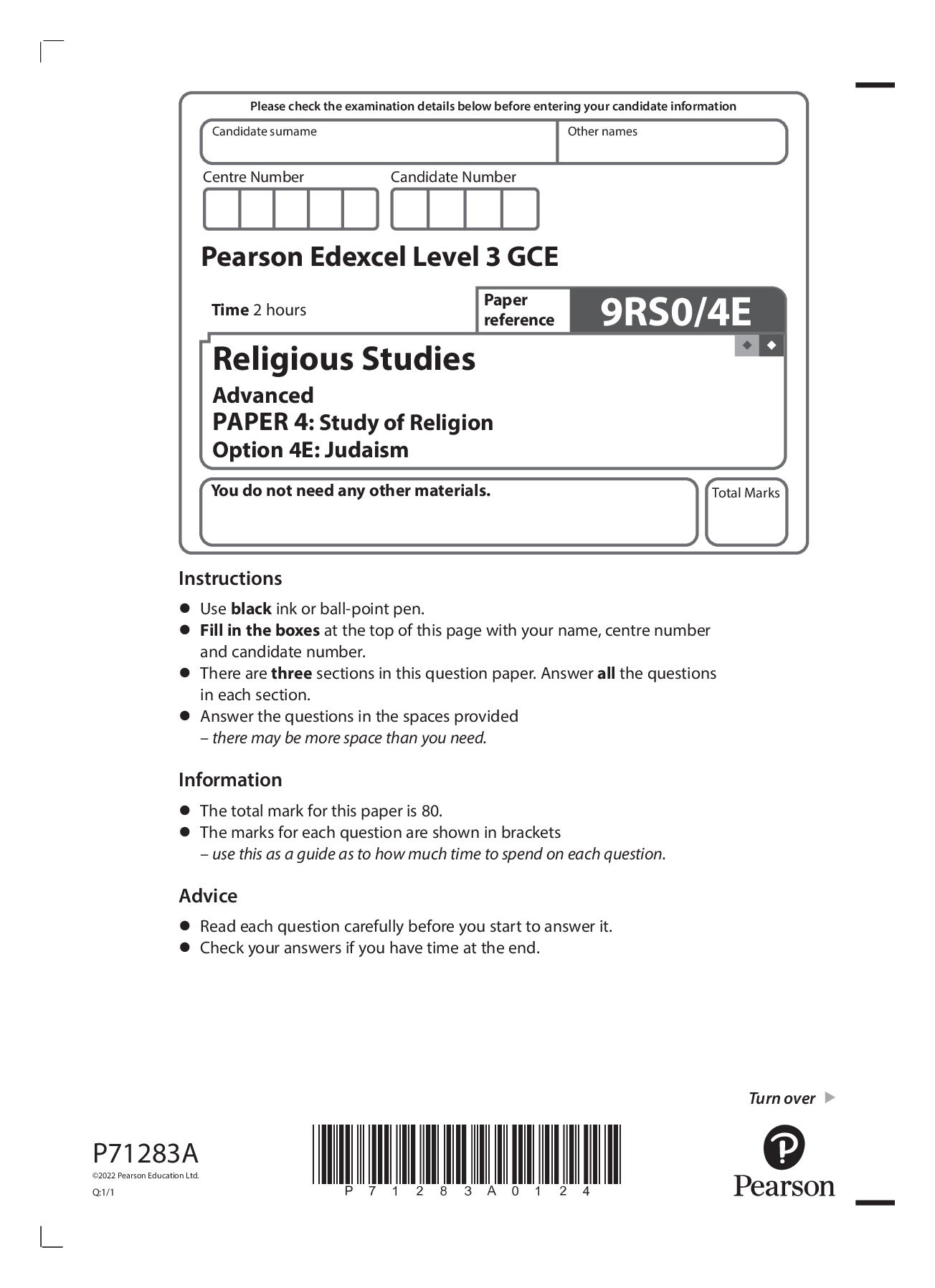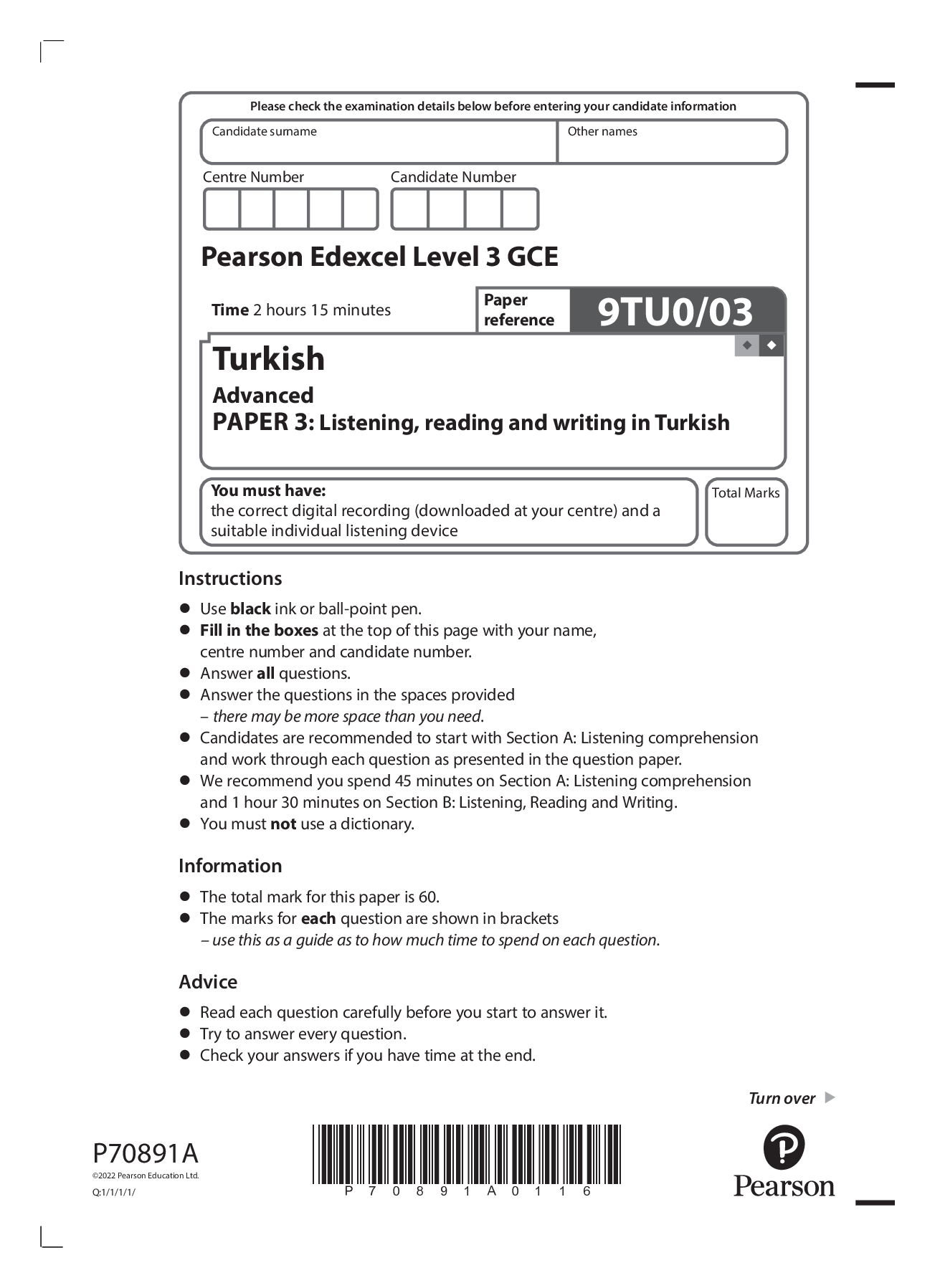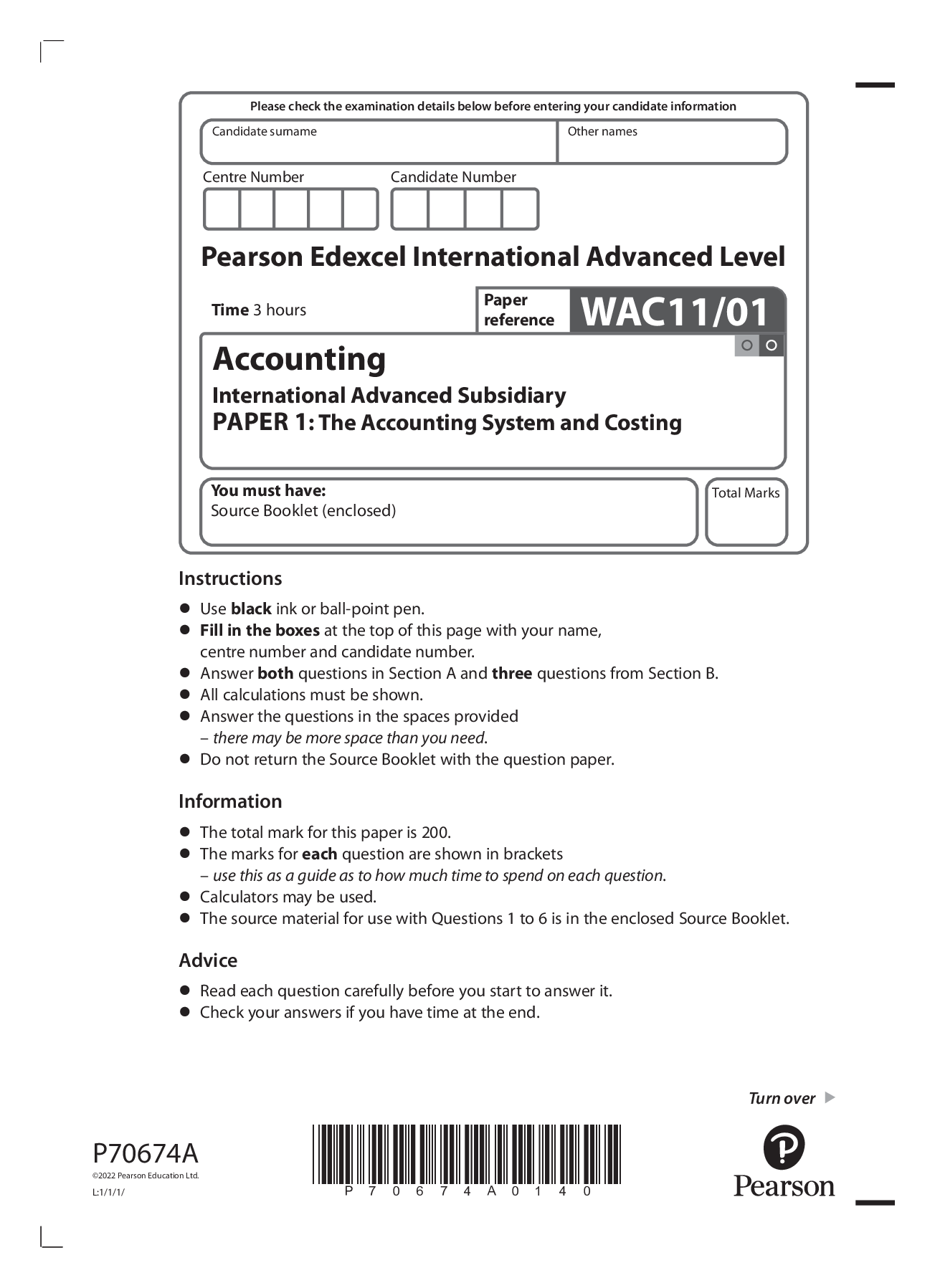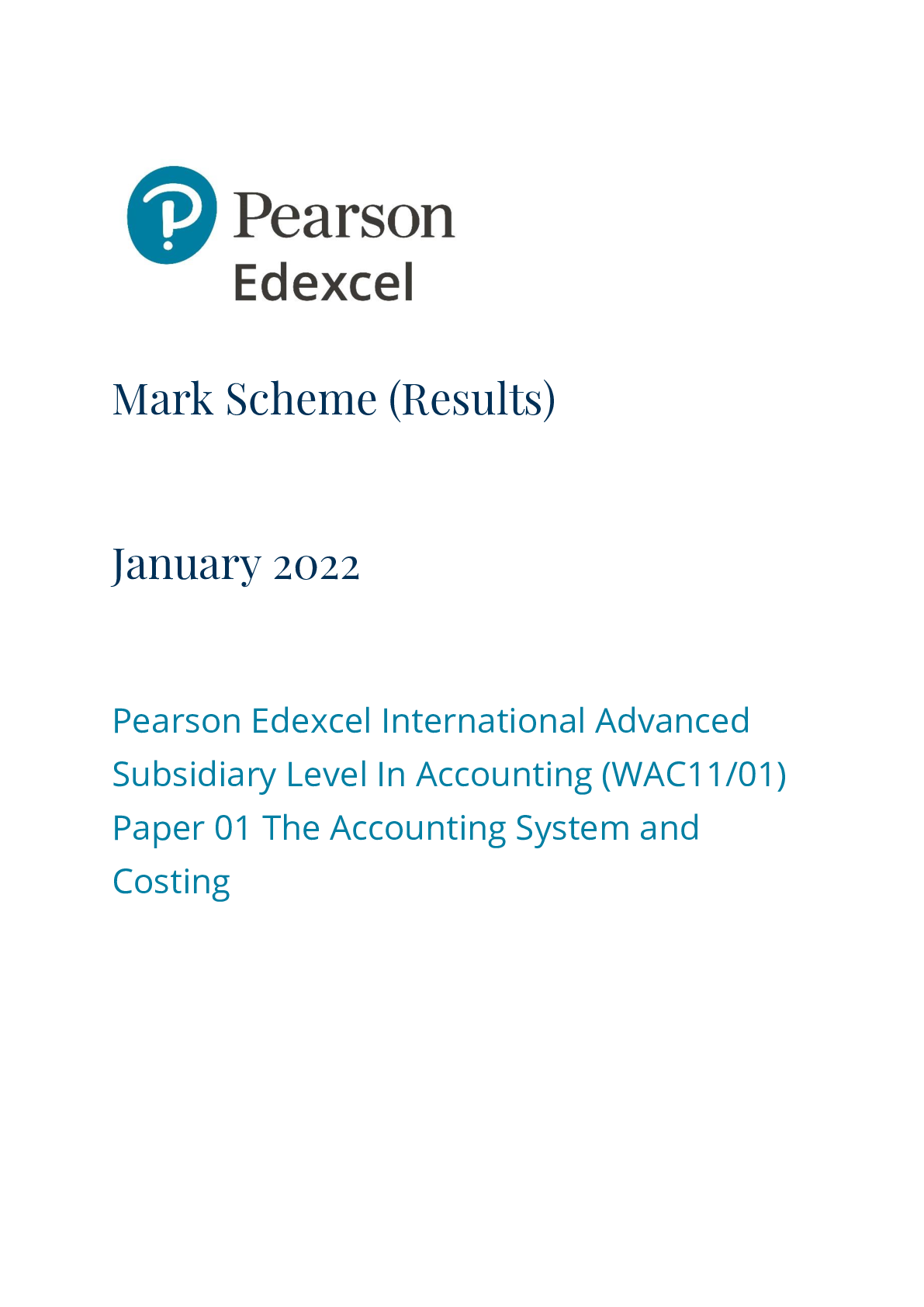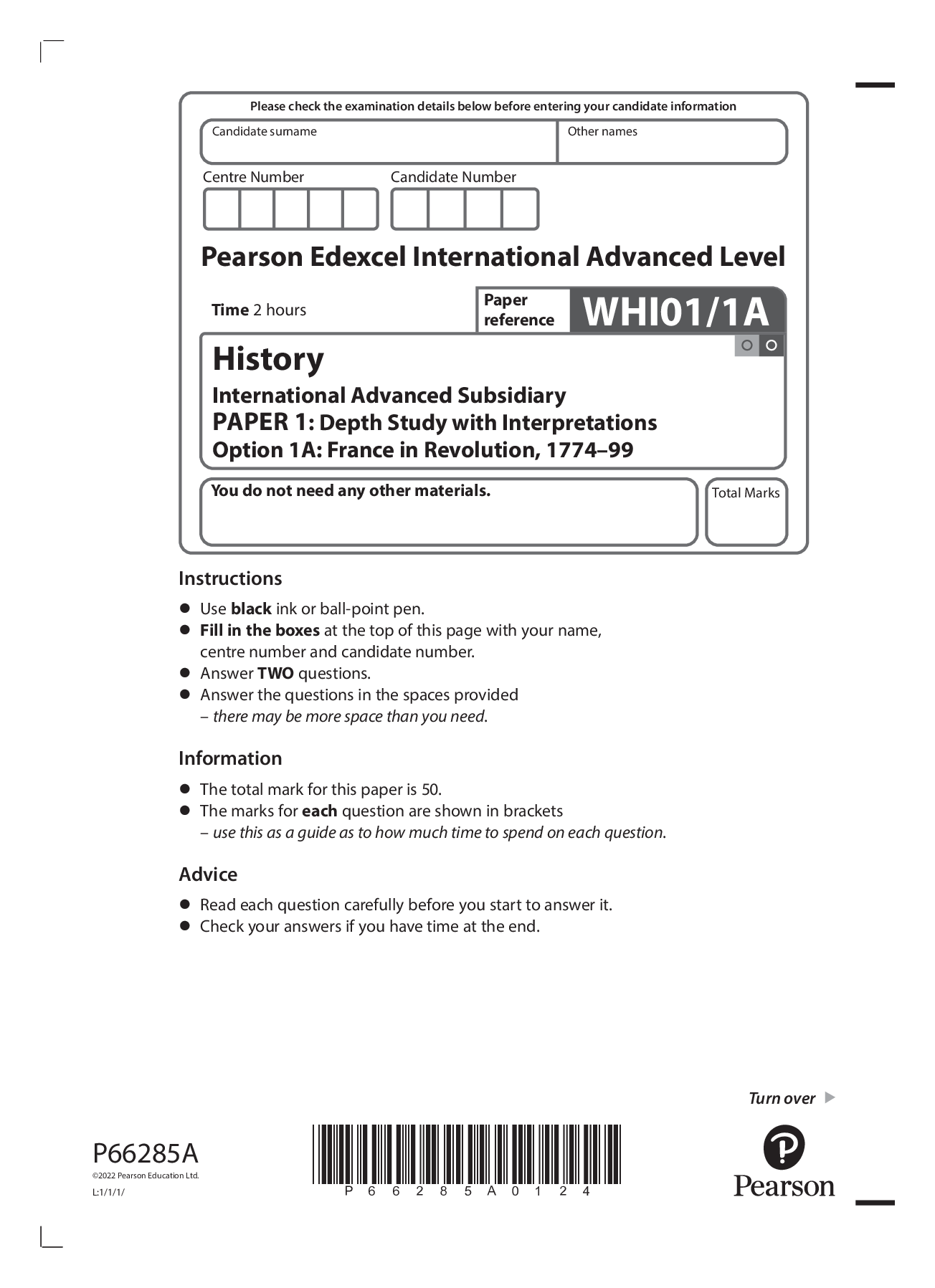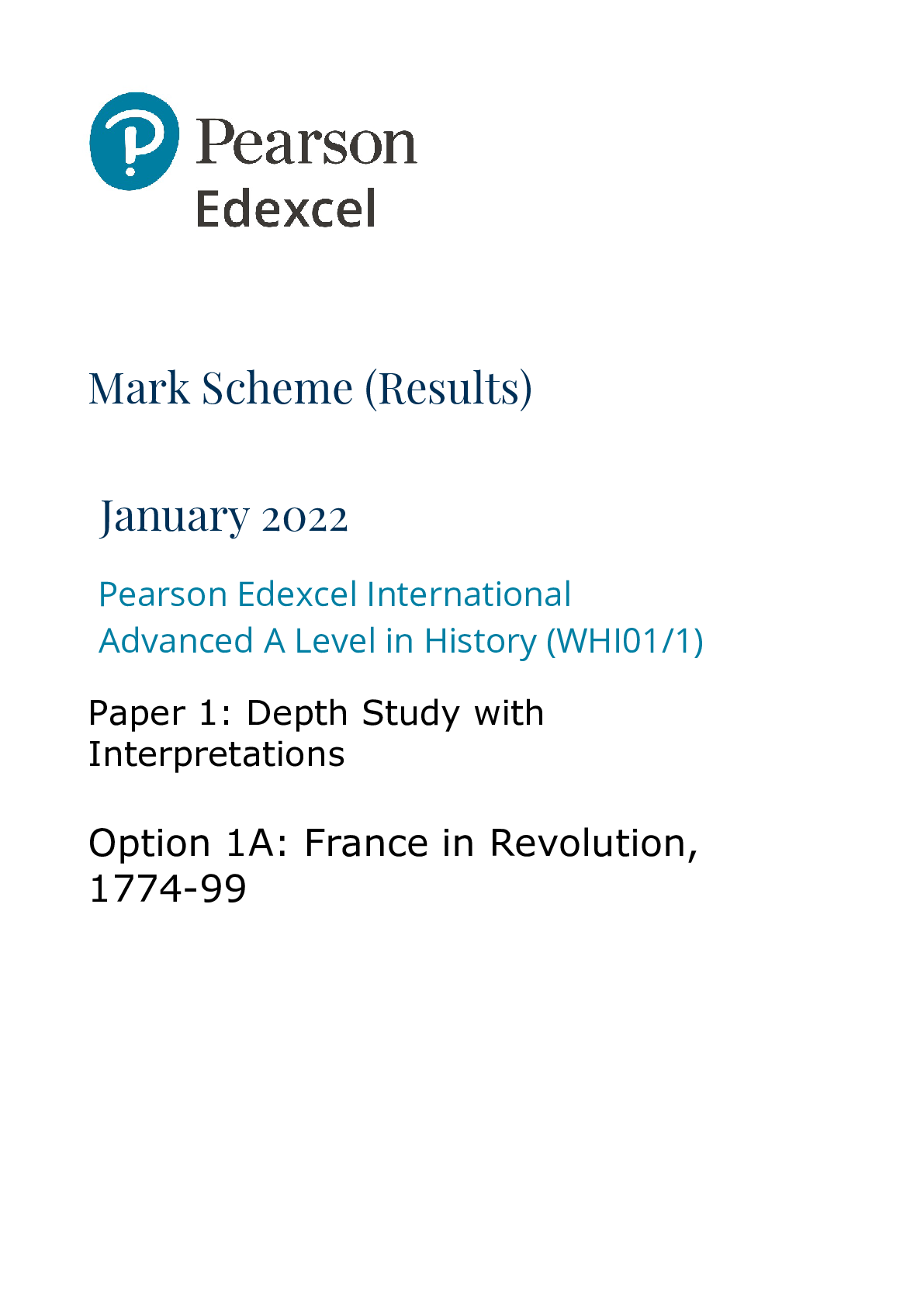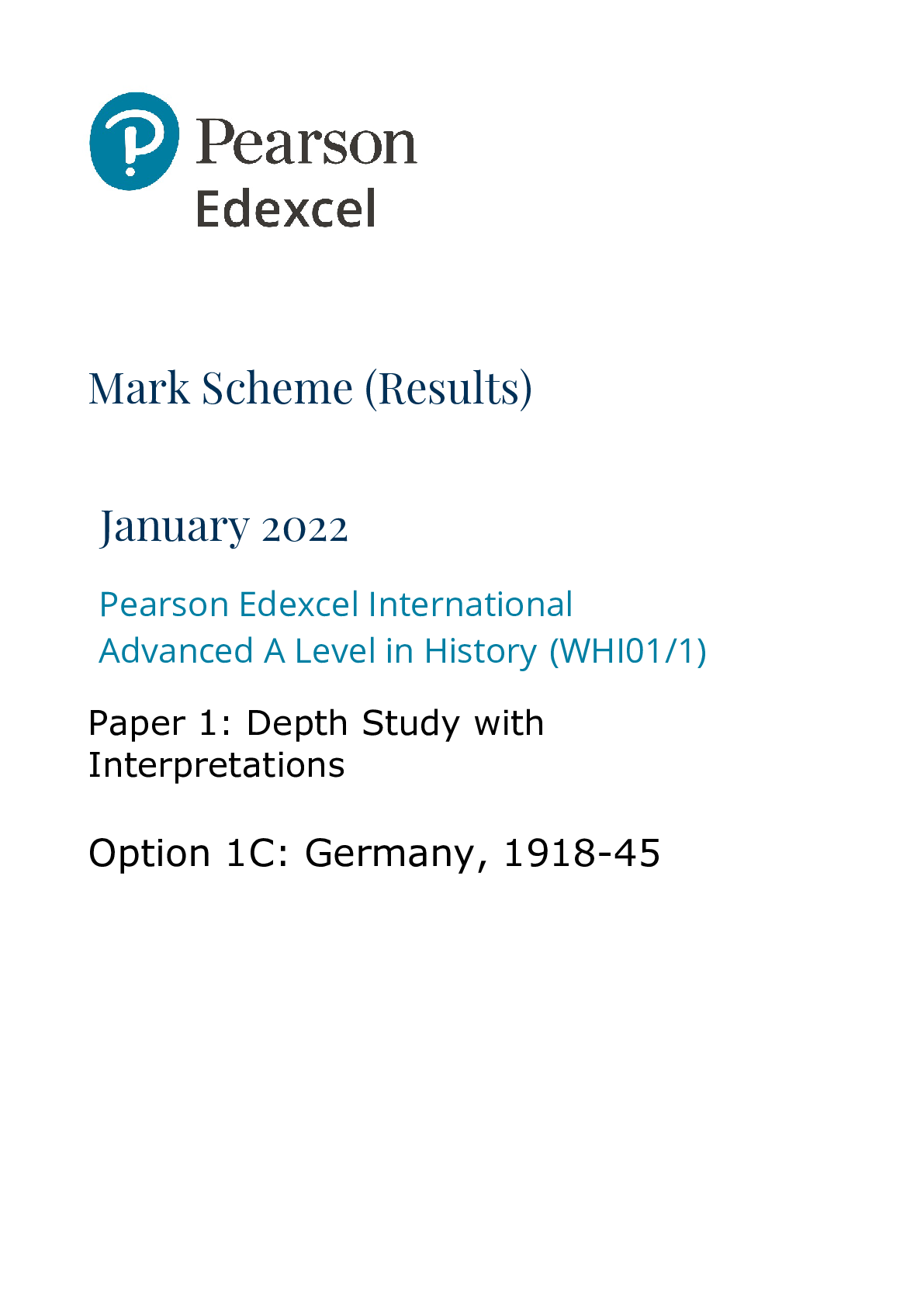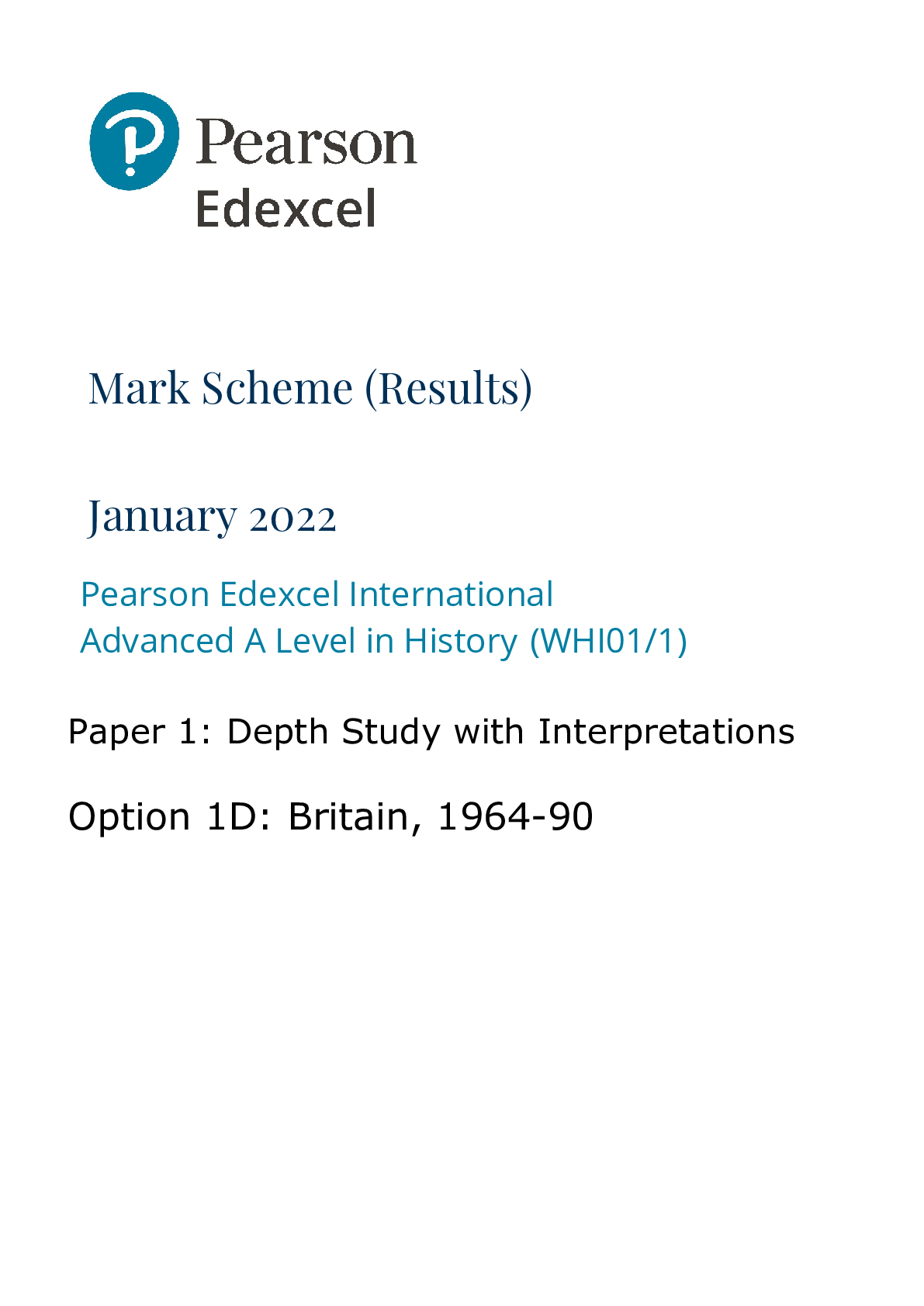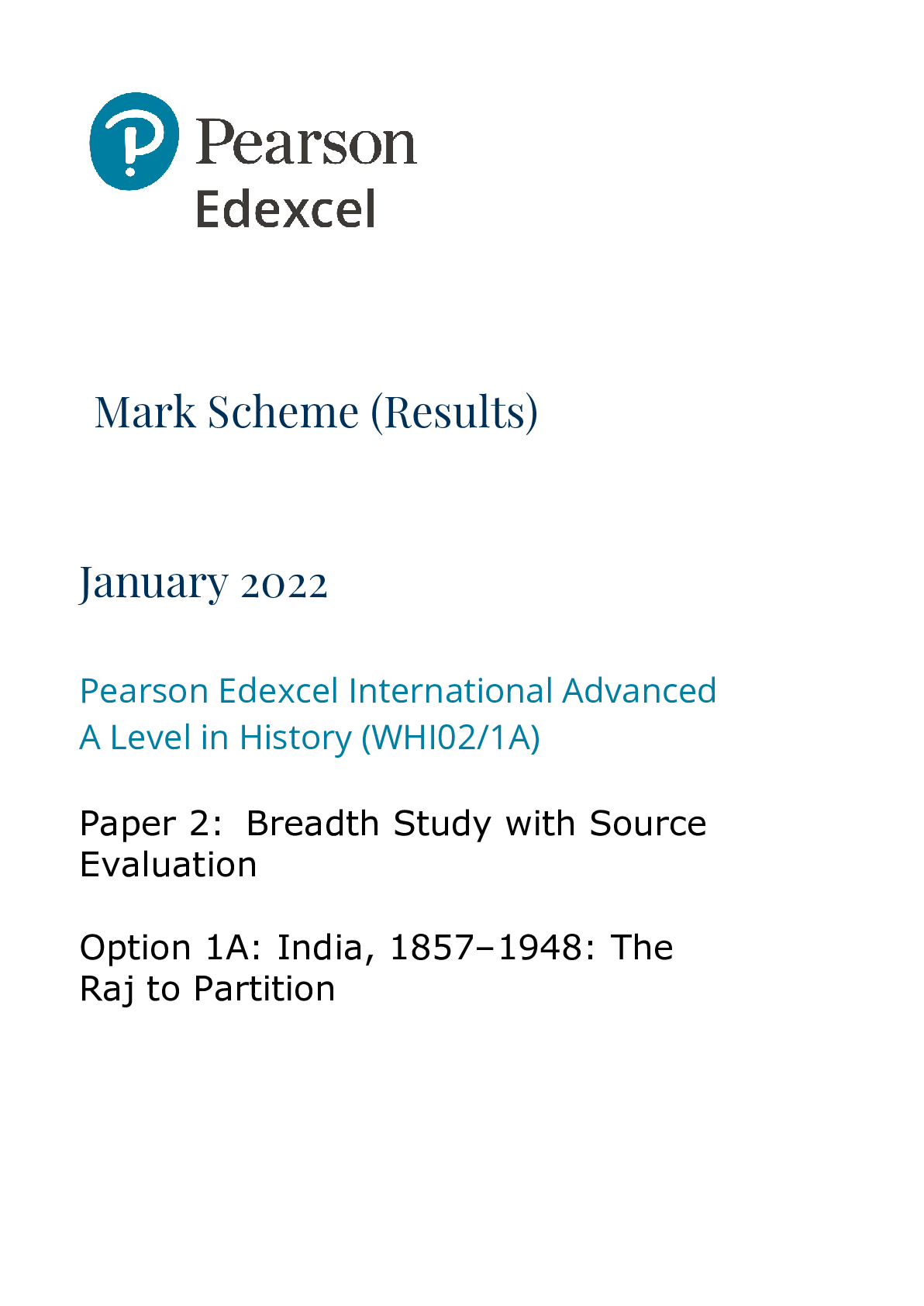NEW UPDATE QUESTION AND ANSWERS NRP 7TH EDITION PART 1 SECTION 1 (2022)
Document Content and Description Below
A baby is born at term with a bilateral cleft lip and palate and a very small mandible. She requires positive-pressure ventilation because she is not breathing. You are unable to achieve a seal with ... bag and mask. Which intervention is indicated? - CORRECT ANSWER Insert a laryngeal mask You are at the resuscitation of a newborn who is gasping and has a heart rate of 60 beats per minute. What is the most important action you can take? - CORRECT ANSWER Provide positive-pressure ventilation What size (internal diameter) endotracheal tube should be used to intubate a newborn with an estimated gestational age of 26 weeks (estimated birth weight of 800 g)? - CORRECT ANSWER 2.5 mm Your team attends an emergency cesarean delivery of a term baby because of chorioamnionitis, meconium-stained amniotic fluid, and fetal heart rate decelerations. At delivery, the newborn is term as expected, with very poor tone and he is not breathing (apneic). You quickly perform initial steps, but the newborn is still not breathing. What is the most appropriate next step of resuscitation? - CORRECT ANSWER Start positive-pressure ventilation and check heart rate response after 15 seconds During the resuscitation of a newborn, you auscultate the apical pulse and count 10 beats over a 6 second period. What heart rate do you report to your team? - CORRECT ANSWER 100 beats per minute You are part of a team preparing for the birth of a baby who has meconium-stained fluid and a category III fetal heart rate tracing. A person skilled in endotracheal intubation should be - CORRECT ANSWER Present at the birth. You are at a delivery of a baby born through meconium-stained amniotic fluid, and the baby is not vigorous. What steps should be taken immediately after birth? - CORRECT ANSWER The baby should be brought to the radiant warmer for initial steps of newborn care. This study source was downloaded by 100000840275362 from CourseHero.com on 04-29-2022 08:34:12 GMT -05:00 https://www.coursehero.com/file/142081782/NEW-UPDATE-QUESTION-AND-ANSWERS-NRP-7TH-EDITION-PART-1-SECTION-1-2022pdf/ What is the most effective maneuver to establish spontaneous breathing in a baby that is apneic after initial steps? - CORRECT ANSWER Administration of positive-pressure ventilation that inflates the lungs A newborn of 34 weeks' gestation is not breathing (apneic) at birth, does not respond to initial steps and requires positive-pressure ventilation. What concentration of oxygen should be used as you begin positive-pressure ventilation? - CORRECT ANSWER 21 - 30% oxygen You have started positive-pressure ventilation for a newborn because her heart rate is low (bradycardia). What is the most important indicator of successful positive-pressure ventilation? - CORRECT ANSWER A rising heart rate A baby requires positive-pressure ventilation because she is not breathing (apneic), but she soon establishes spontaneous respirations and a heart rate over 100 beats per minute. Her oxygen saturation is lower than the target level when in room air, so you provide free-flow oxygen. Which of the following devices cannot reliably deliver free-flow oxygen? - CORRECT ANSWER Mask of self-inflating bag Which statement best describes normal transitional physiology at the time of birth? - CORRECT ANSWER Babies may take as long as 10 minutes after birth to increase their oxygen saturation to greater than 90%. A baby is born at 34 weeks' gestation. After the initial steps of resuscitation, the baby is not breathing (apneic). What are the next steps? - CORRECT ANSWER Initiative positive-pressure ventilation, place a pulse oximeter sensor on the right hand or wrist, evaluate heart rate. A full-term baby is born by emergency cesarean delivery because of fetal bradycardia (Category III fetal heart rate tracing). The baby is limp and not breathing after initial steps. What is the next step in the resuscitation process? - CORRECT ANSWER Initiate positive-pressure ventilation and check for increasing heart rate This study source was downloaded by 100000840275362 from CourseHero.com on 04-29-2022 08:34:12 GMT -05:00 https://www.coursehero.com/file/142081782/NEW-UPDATE-QUESTION-AND-ANSWERS-NRP-7TH-EDITION-PART-1-SECTION-1-2022pdf/ What is the appropriate technique to stimulate a baby to breathe? - CORRECT ANSWER Gently rub the baby's back or extremities You are called to attend to a newborn at birth. At the time the baby is delivered, which 3 questions should you ask to evaluate whether the baby can stay with his mother or be moved to the radiant warmer for further assessment? - CORRECT ANSWER Is the baby term? Does the baby have good muscle tone? Is the baby breathing or crying? [Show More]
Last updated: 1 year ago
Preview 1 out of 5 pages
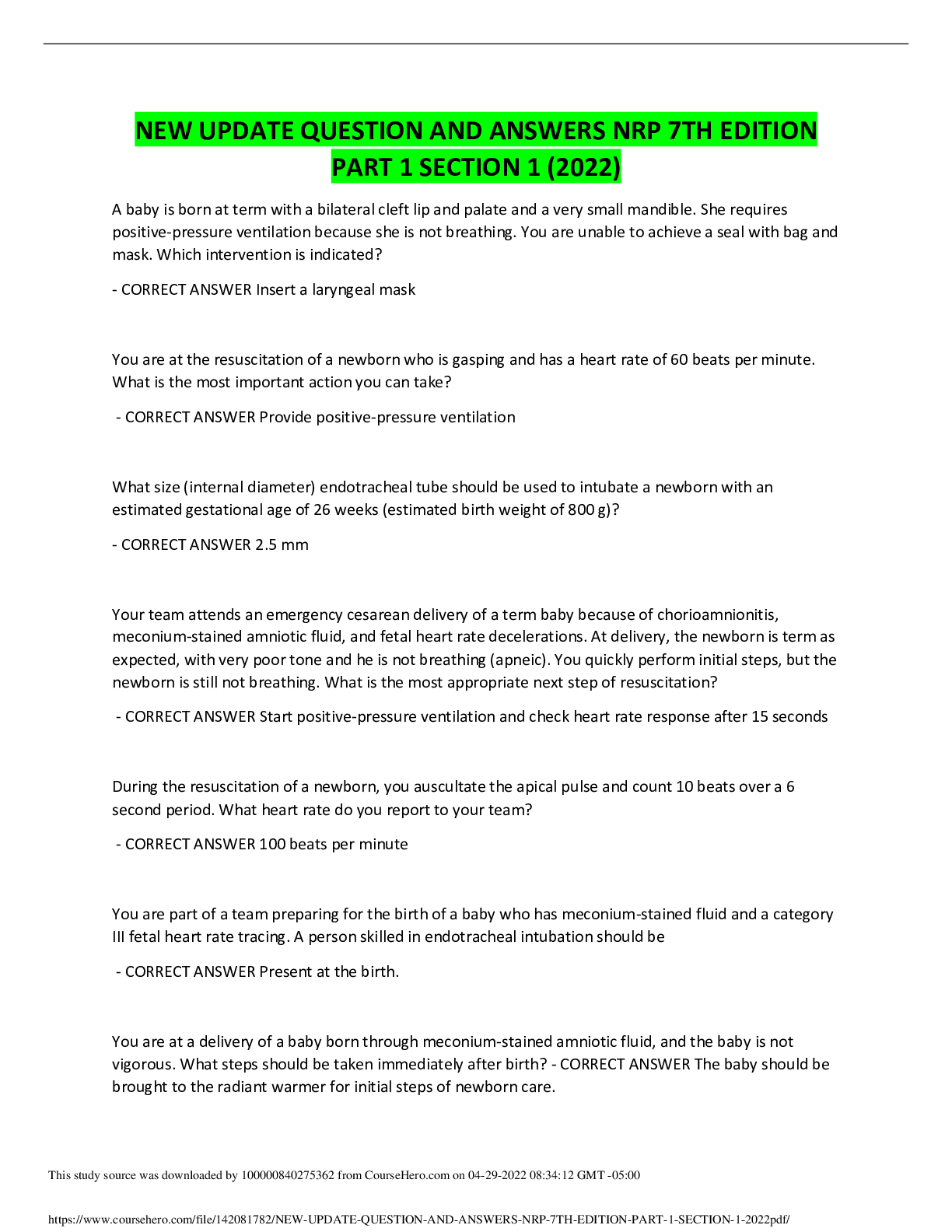
Reviews( 0 )
Document information
Connected school, study & course
About the document
Uploaded On
Apr 29, 2022
Number of pages
5
Written in
Additional information
This document has been written for:
Uploaded
Apr 29, 2022
Downloads
0
Views
87

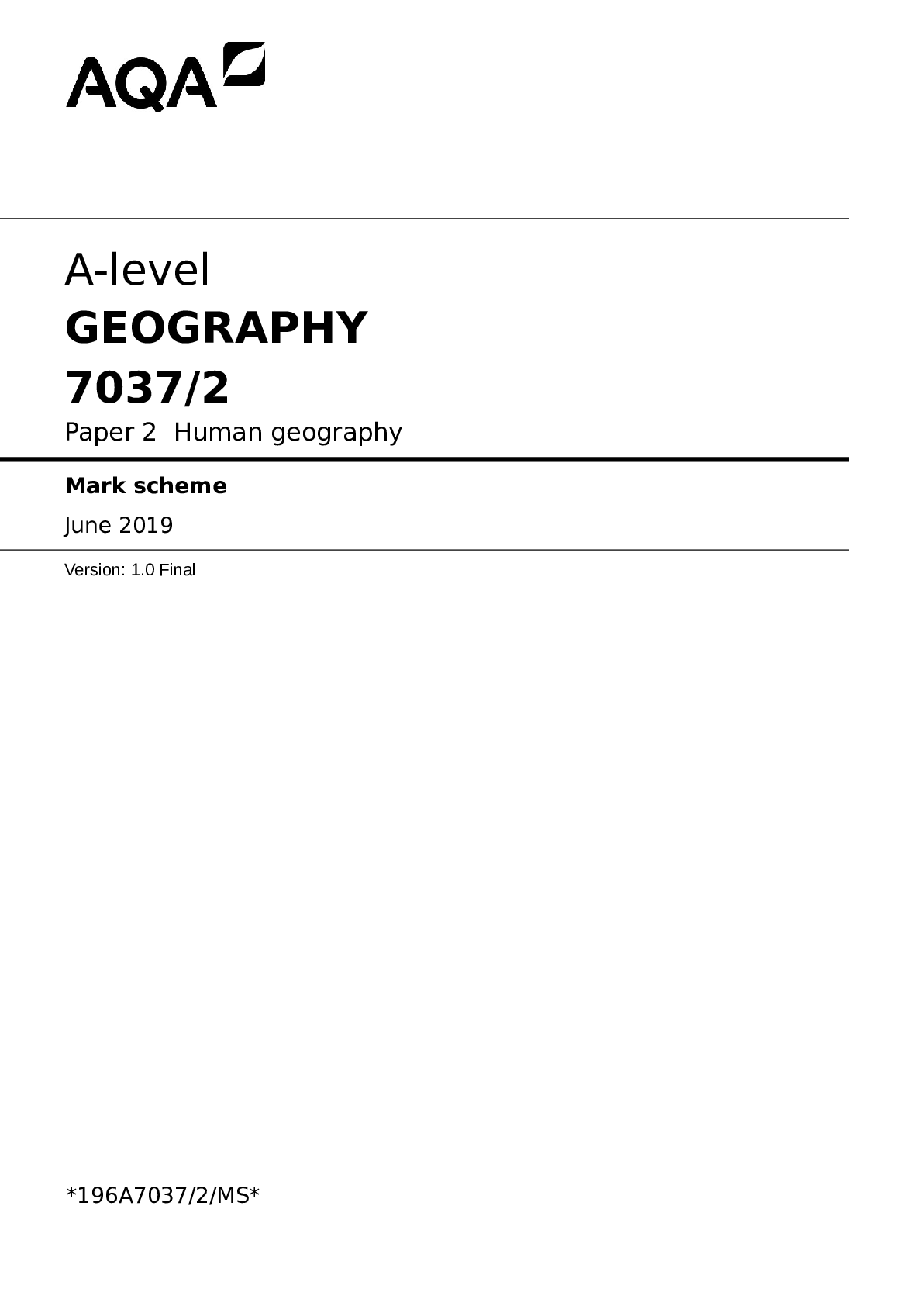
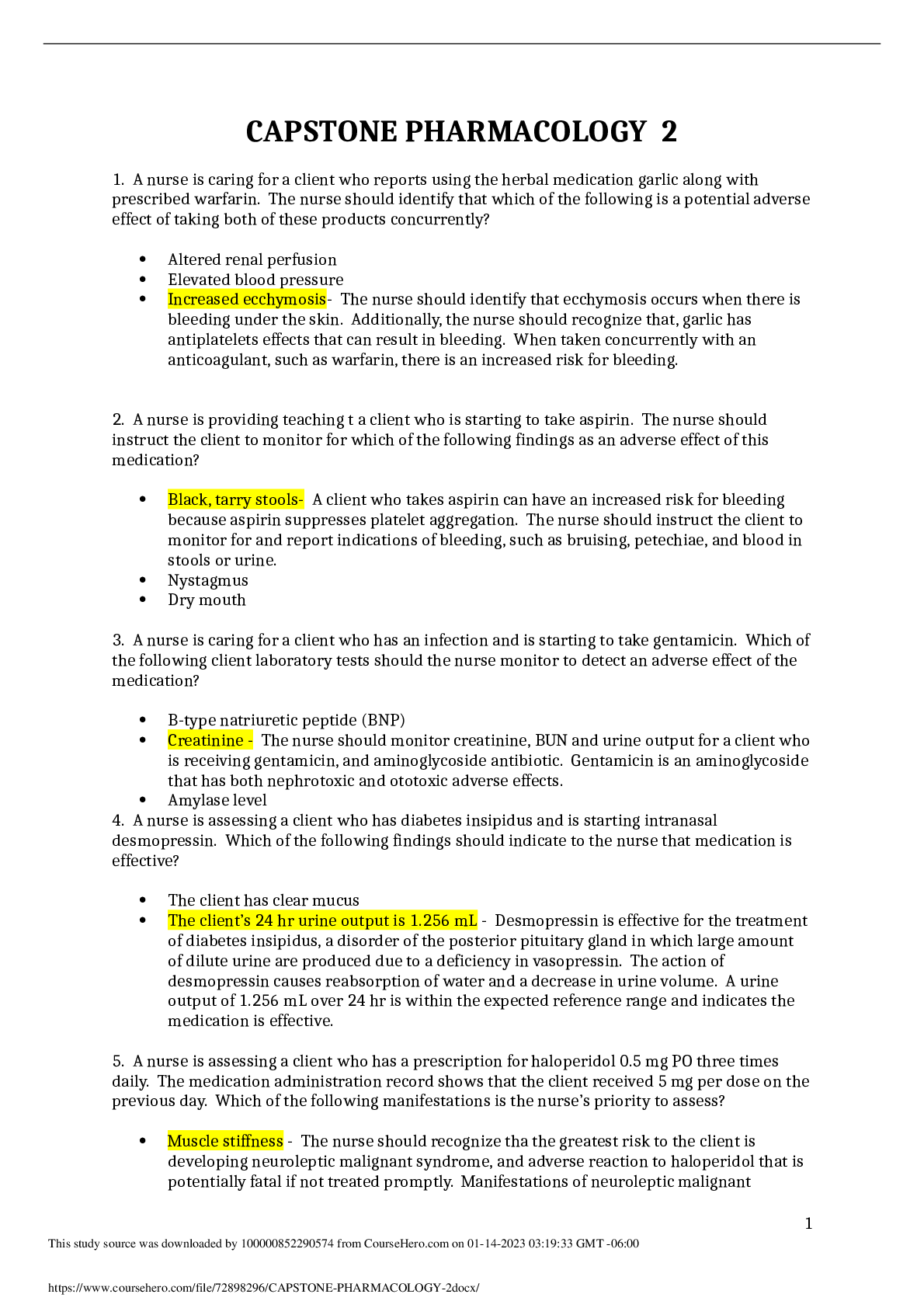

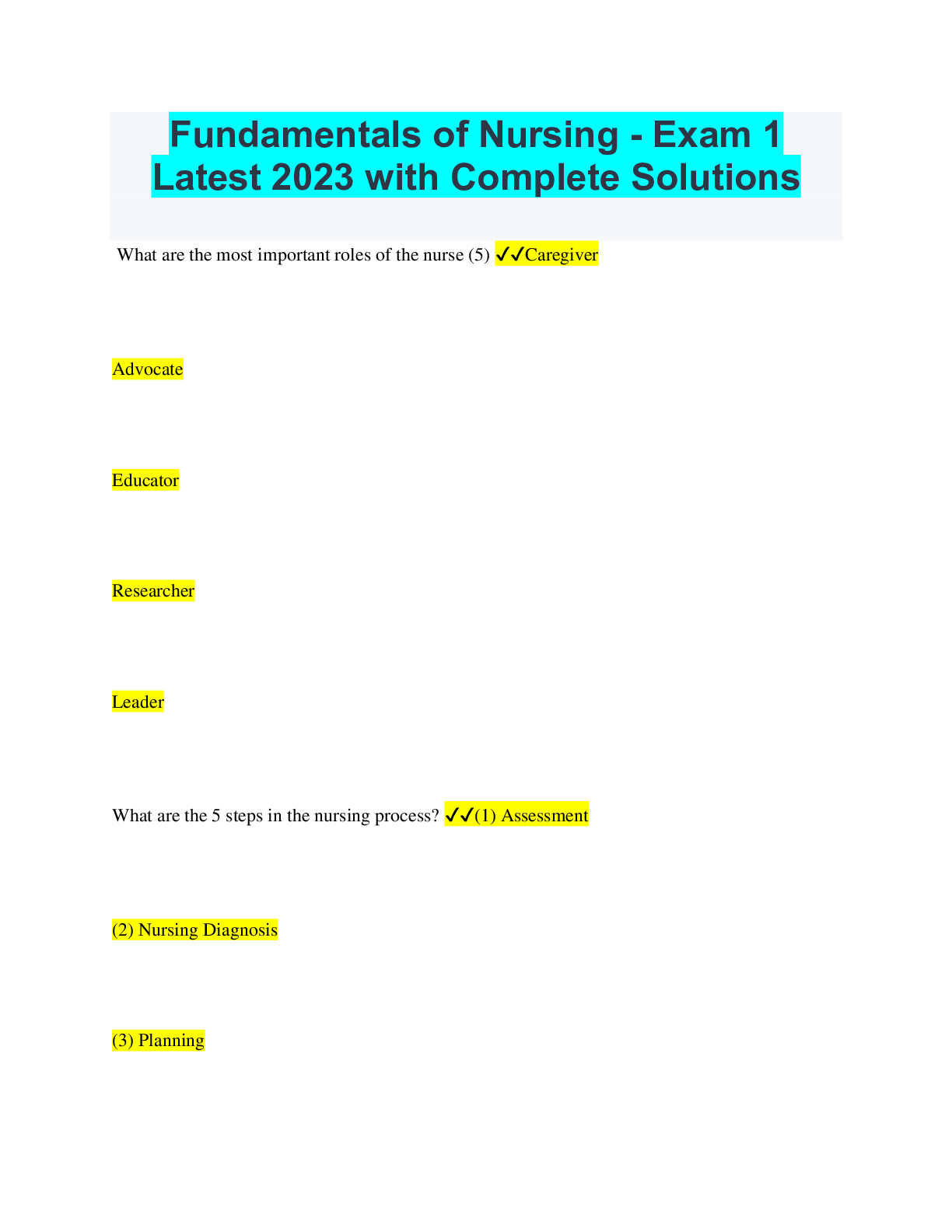
.png)
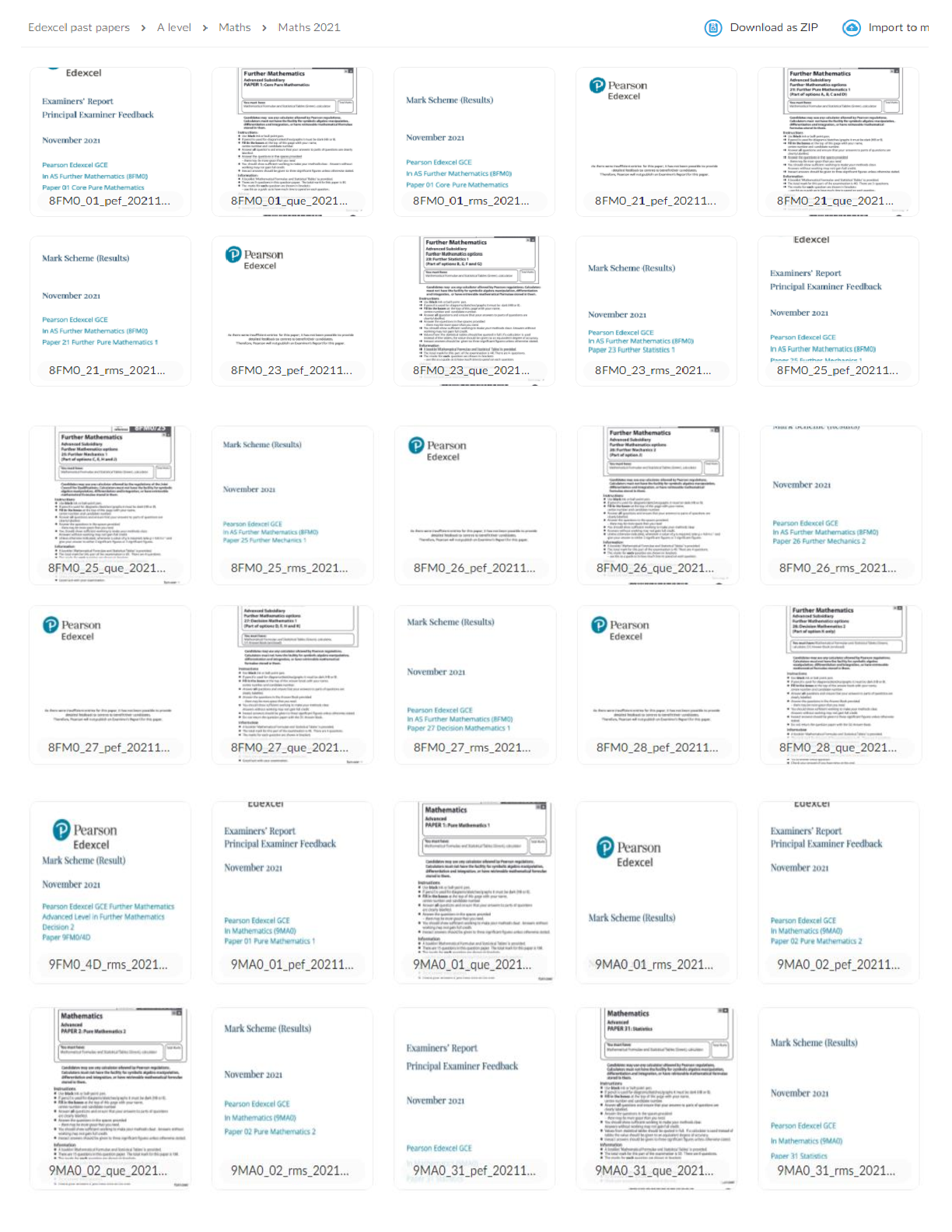
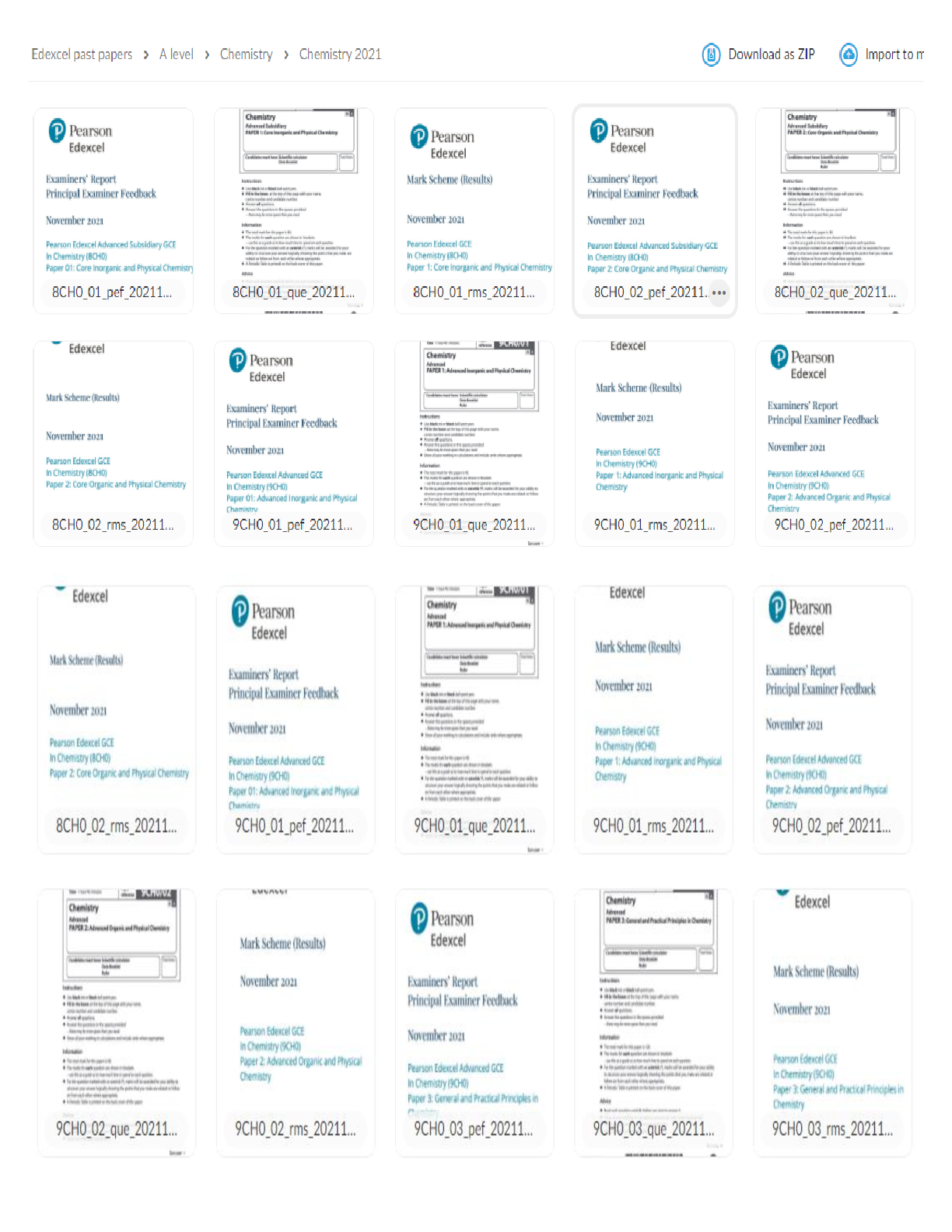
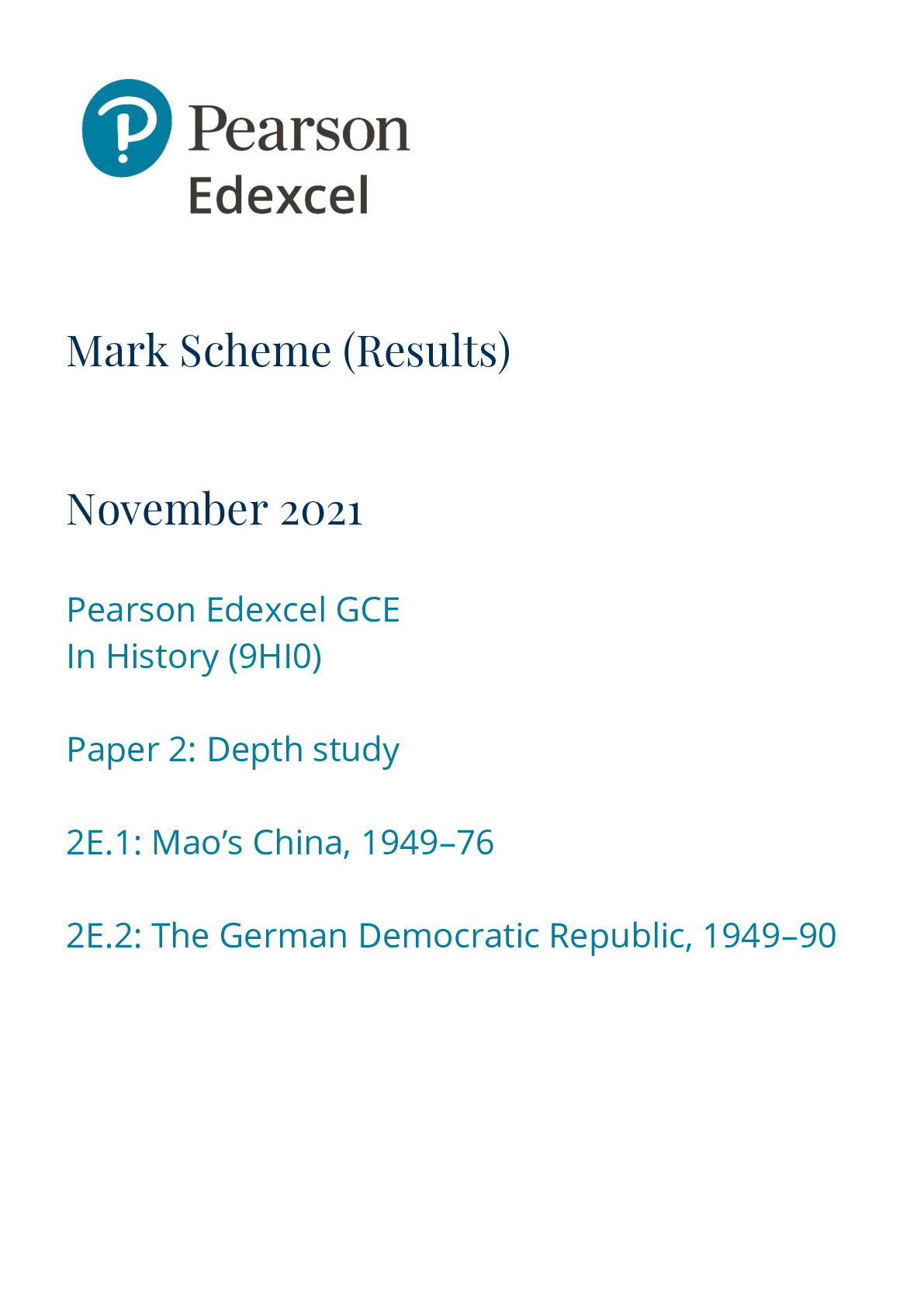
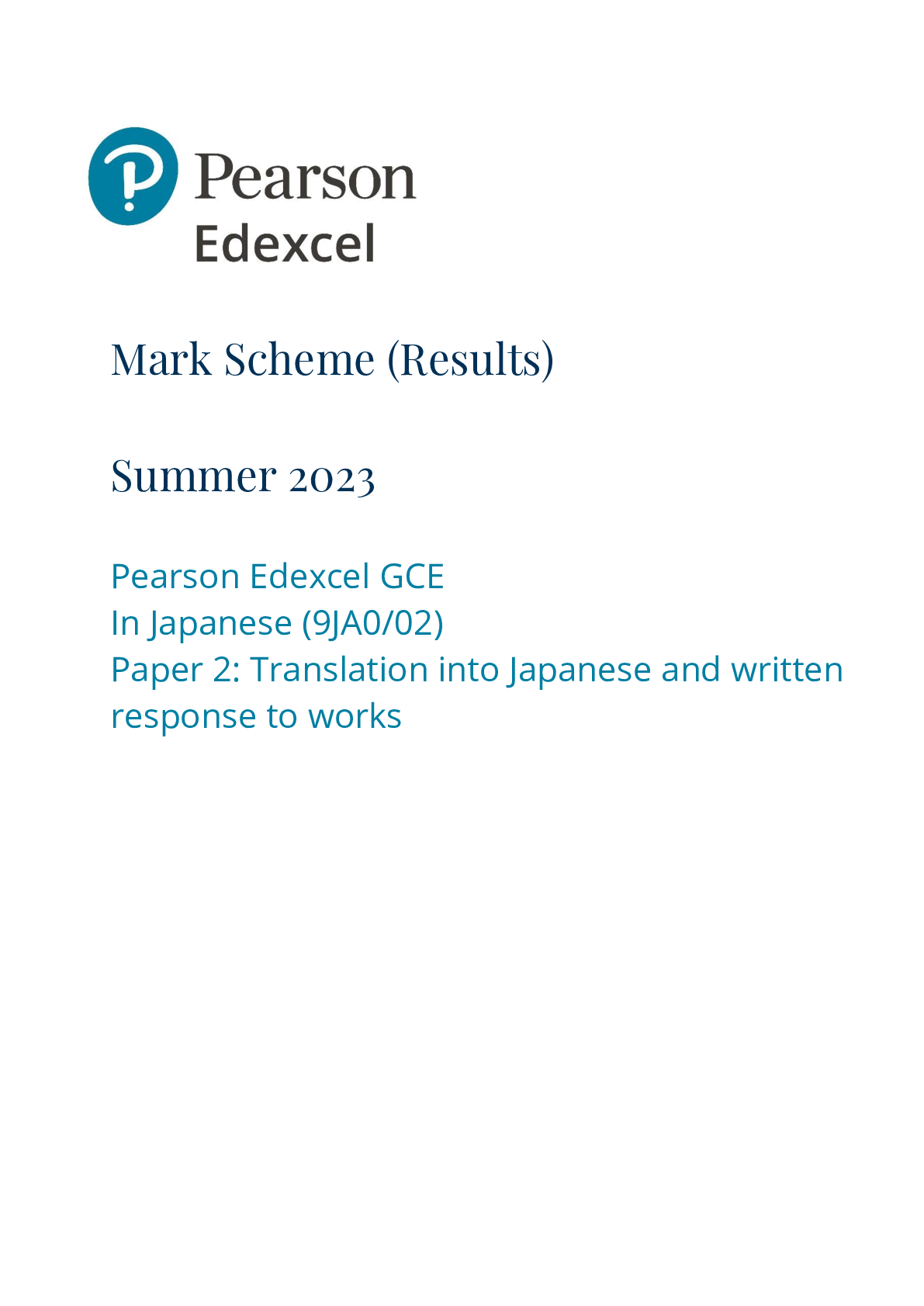
.png)
.png)
